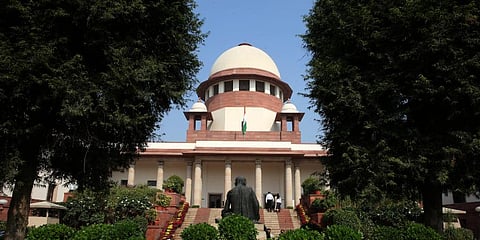

NEW DELHI: Amid an ongoing debate following the Supreme Court’s recent verdict in the Tamil Nadu case setting a deadline for granting assent to bills, the think tank PRS Legislative Research on Thursday released its report highlighting significant variations in the time governors took to give assent to bills in 2024.
The report noted that around 18 per cent of bills across states took over three months to receive final clearance. In its report, PRS Legislative Research stated, “In 2024, state legislatures passed more than 500 Bills and scrutinised their state budgets, cumulatively worth about Rs 58 lakh crore.”
After analysing the functioning of 31 state legislatures in 2024, PRS found that assemblies sat for an average of 20 days, amounting to approximately 100 hours in total. “And during these days passed more than 500 Bills and the budgets worth Rs 58 lakh crore,” the report said.
It added that Odisha held the highest number of sitting days at 42, followed by Kerala with 38 and West Bengal with 36. In contrast, Manipur which is under President's Rule, met for only 14 days, Nagaland for six, Sikkim for eight, and Arunachal Pradesh for 16.
“As the Constitution mandates legislature to meet at least once in six months, only eleven states met this requirement through short sessions that lasted for one or two days,” the report stated.
The report further highlighted that only 4% of bills passed in 2024 were examined by committees. Of over 500 bills, just 22 were referred to committees across seven states, with reports on 15 of them presented to their respective assemblies.As an example, it noted that 12 bills in Kerala were referred to Subject Committees.
It also revealed that 28 states, on average, discussed their budgets for seven days. Kerala and Goa spent the most time on budget discussions, dedicating 18 days each, followed by Odisha with 16 days, Gujarat with 14, and Rajasthan with 13. On the other hand, six states including Madhya Pradesh, Punjab and Telangana, debated and passed their budgets within just two days.
The Annual Review of State Laws report released by PRS on Thursday observed that in states such as Arunachal Pradesh, Bihar, Delhi, Mizoram and Rajasthan, all bills received assent within a month. Across states, 60 per cent of bills obtained the governor’s assent within a month.
“In 2024, across states, there was wide variation in the time taken by governors to give assent to bills,” the PRS report stated.
States where a significant proportion of bills took more than three months to receive assent included Congress-ruled Himachal Pradesh (72 per cent of bills), Trinamool Congress-ruled West Bengal (38 per cent), and Sikkim (56 per cent). Of all bills passed in 2024, 18 per cent received assent after more than three months. This includes bills still awaiting assent as of April 2025.
The Tamil Nadu government had earlier approached the Supreme Court regarding 12 bills pending with the governor, which the legislature had passed between 2020 and 2023.
After receiving notice from the court in 2023, the governor returned 10 of these bills to the assembly. When the legislature passed them again, the governor reserved the bills for the President’s opinion. These bills remain pending.
“Some states have had issues with summoning of session and governor's address,” the report noted, pointing out that assembly sessions begin when the governor summons the House and end when the governor prorogues it.
In 2024, sessions in Delhi, Tamil Nadu, and West Bengal continued for more than six months without prorogation, with long intervals between sittings. In Delhi and Tamil Nadu, a session lasted from February to December 2024, with 18 sittings in Tamil Nadu.
In West Bengal, a session that began in July 2023 had not been prorogued as of May 2025. In Tamil Nadu, in February 2024, the governor refused to deliver his address to the assembly and walked out of the House, a similar incident occurred in January 2025.
It is notable that on 8 April, the apex court issued a verdict concerning the powers of governors in handling bills, as contested by the Tamil Nadu government. For the first time, the Court stipulated that the President should decide on bills reserved for her consideration by the governor within three months of the reference being received.
Subsequently, on 13 April 2025, President Droupadi Murmu invoked Article 143(1)—a provision rarely used—to seek the Supreme Court’s opinion on whether judicially-imposed timelines could govern the President’s discretion in dealing with bills passed by state assemblies. The Centre opted for a presidential reference instead of requesting a review of the verdict, a move that has triggered sharp political reactions.